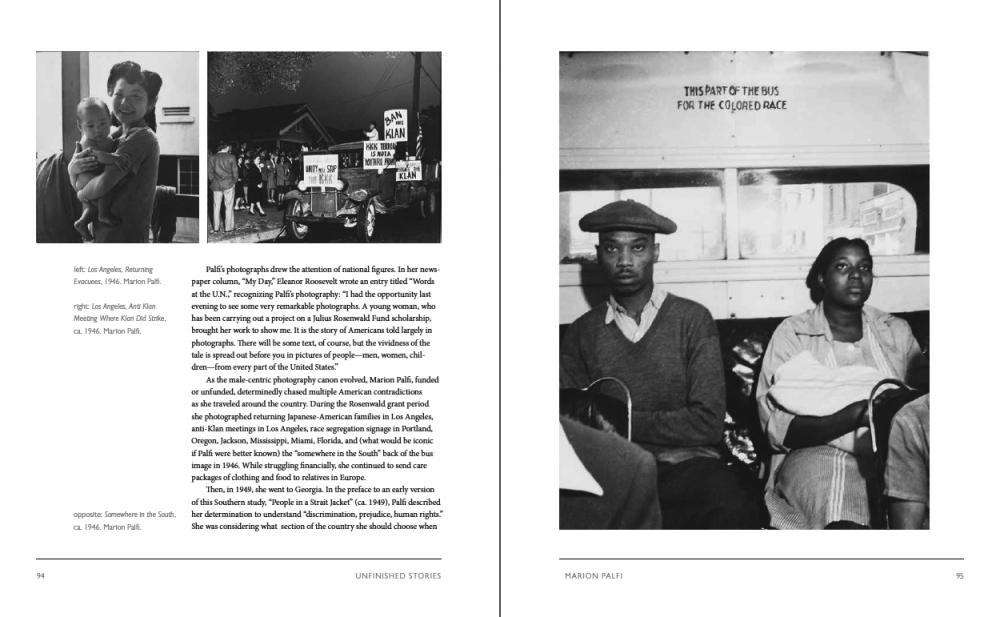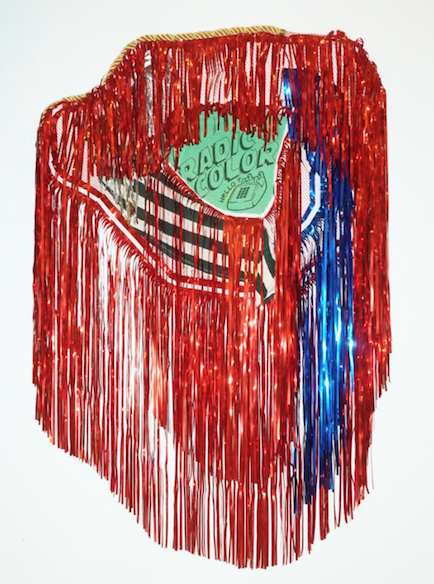Tidbits - January 11, 2018 - Reader Comments: Puerto Rican Foreclosures; Israel - Teens Refuse New Ban on BDS Supporters; Pensions; Second Amendment; Jim Crow history; Women's March 2018 - January 20; and more.....
Re: Puerto Ricans Brace for Another Disaster: Foreclosures (Jacqueline Ponce Martinez; Ilia Pagan Rivera)
Re: Dozens of Israeli Teens: 'We Refuse to Enlist Out of a Commitment to Peace' (Rudy Subedar; Cary Berkelhamer; Carmen A Ramos)
Re: Why Has Israel Banned Jewish Leftists But Not Members of Nazi-Linked Groups? (Stan Nadel)
Re: Settler Colonialism and the Second Amendment (Kathrin Raab-Questenberg)
Re: The Free Market Made Us Do It! (Norm Littlejohn)
Re: Worker Safety Experts: Court Ruling on Silica Dust Limits is a “Huge Victory” (Daniel Millstone)
Re: ‘I Hope I Can Quit Working in a Few Years’: A Preview of the U.S. Without Pensions (Albert Corliss)
President in Denial - cartoon by Dan Wasserman
Re: US Nuclear Tests Killed Far More Civilians Than We Knew (Aaron Patrick Laundry)
Re: The Polluter Is Not Paying (Raymond Zwarich)
Re: Trump to Call on Pentagon, Diplomats to Play Bigger Arms Sales Role (Irene Durham)
Re: Why Did Protests Erupt in Iran (Tim Ivory)
Re: Right Hooks: Trump and the Anatomy of the Alt-Right (Steve Moyer)
Re: A Subversive Bull: Robert Lawson and The Story of Ferdinand (Reinaldo Luis Casellas; Naida Tushnet)
Re: Tough Guys (Sonia Collins)
Re: What #MeToo Can Teach the Labor Movement (Dennis Thome)
Re: The Future of Work, a History (Per Fagereng)
Re: The Case Against a Basic Income (Center for Marxist Education; Eli Levine; Nick Jennings)
The film, "Gook" (Leanna Noble)
"There Is No More Time: An American Tragedy" (Janet Zandy)
Portside's New Format (David)
Over One Million U.S. Citizens Visited Cuba in 2017
Resources:
New Resource - Online tool - Sectors of the US Right (Political Research Associates)
New Film - American Socialist: The Life and Times of Eugene Victor Debs (Yale Strom)
Announcements:
Women's March - January 20 - What You Need to Know About the 2018 Women's March - nationwide actions --- Power to the Polls - Las Vegas, Nevada - January 21
An Evening for the People of Yemen - Brooklyn - January 25 (Brooklyn for Peace)
Exhibition: The Caribbean Disapora - May Contain Moving Parts - New York - through February 3
Re: Puerto Ricans Brace for Another Disaster: Foreclosures
This article should be totally translated into Spanish and it should be published in all Puerto Rico's newspapers. Even by doing this, many with no light or access or knowledge of internet use, have no way of knowing what their rights are. Some will benefit from the translation and publication though. Help them keep their homes.
Jacqueline Ponce Martinez
Posted on Portside's Facebook page
=====
40+% of the island is still without electricity, road access to many places is unavailable... Extremely high salaries are paid to enterprises that, supposedly, come to rebuild the country. I mostly see our own workers do their best and getting paid the usual low salaries.
Ilia Pagan Rivera
Posted on Portside's Facebook page
Re: Dozens of Israeli Teens: 'We Refuse to Enlist Out of a Commitment to Peace'
Great Article, providing a perspective from the 'inside' rather than the standard fare of propaganda served up by the mainstream media.
Rudy Subedar
Posted on Portside's Facebook page
=====
They're my hero's You go girls.
Cary Berkelhamer
Posted on Portside's Facebook page
=====
Good Girls. Boys should also write letters refusing to serve an army that is abusive.
Carmen A Ramos
Posted on Portside's Facebook page
Re: Why Has Israel Banned Jewish Leftists But Not Members of Nazi-Linked Groups?
Because all the "Nazi-linked" groups listed purport to be pro-Israel and the Israeli government is concerned about letting in "enemies" of Israel, not Antisemites. The leaders of the groups banned, Jewish and not, are all viewed rightly or wrongly as hostile to Israel's existence and not just various Israeli policies. Phrasing this in terms of "Jewish Leftists" is just a red herring.
Stan Nadel
Re: Settler Colonialism and the Second Amendment
I bet they did not teach you this in your US history class: To the settlers’ dismay, soon after the 1763 Treaty of Paris was signed, King George III issued a proclamation prohibiting British settlement west of the Allegheny-Appalachian mountain chain, ordering those who had settled there to relinquish their claims and return to the kingdom’s thirteen colonies. Soon it became clear that the British authorities needed far more soldiers to enforce the edict, as thousands of settlers ignored it and continued to pour over the mountains, squatting on Indigenous lands, forming armed militias, and provoking Indigenous resistance. In 1765, in order to enforce the Proclamation line, the British Parliament imposed the Stamp Act on the colonists, a tax on all printed materials that had to be paid in British pounds, not local paper money. The iconic colonial protest slogan “taxation without representation is tyranny” marked the surge of rebellion against British control, but it did not tell the whole story, considering what the tax was for: to pay the cost of housing, feeding, and transporting soldiers to contain and suppress the colonies from expanding further into Indian territory.
Kathrin Raab-Questenberg
Posted on Portside's Facebook page
Re: The Free Market Made Us Do It!
Funny how the Invisible Hand is always stroking these guys, and slapping the rest of us.
Norm Littlejohn
Posted on Portside's Facebook page
Re: Worker Safety Experts: Court Ruling on Silica Dust Limits is a “Huge Victory”
(posting on Portside Labor)
I had not heard of this pre-xmas court decision and the report doesn't link to the text (why not?) but see other reports which do in the comments below. Thanks to Portside for this.
Daniel Millstone
Posted on Portside's Facebook page
Re: ‘I Hope I Can Quit Working in a Few Years’: A Preview of the U.S. Without Pensions
(posting on Portside Labor)
They want us to retire when we have our foot in the grave, while they've pirated and ransacked our pockets!
Albert Corliss
Posted on Portside's Facebook page
President in Denial - cartoon by Dan Wasserman
Dan Wasserman
January 8, 2018
Boston Globe
Re: US Nuclear Tests Killed Far More Civilians Than We Knew
Why did they have to test them? After they built and dropped two the results were kinda obvious.
Aaron Patrick Laundry
Posted on Portside's Facebook page
Re: The Polluter Is Not Paying
My wife and I live in central MA, in Brookfield, about 20 miles or so west of Worcester. We own and run an organic farmstead. Before we bought this property in 2010, we shopped for property all over New England. One advantageous market that appealed to us, with relatively lower prices and much lower property taxes, was Cape Cod. We looked at several properties down there, and actually made an offer on one.
It was in shopping that real estate market that we learned about the pollution of the Cape's water table by Otis Air Base, which has greatly expanded since then into what is now called Joint Base Cape Cod. There is what is called a "plume" of pollution in the underground water table that is steadily expanding around the base. This plume has been mapped, and affects real estate values in any direction it is feared it might expand. Most homes on Cape Cod use on-site groundwater wells as their main source of water.
You surely must already know about this, but I thought I'd just write to mention how rather odd it seemed, while reading your article, that you would write about pollution by the US military all the way over in Korea, without even mentioning the extensive pollution around military bases right here in the US, including around several right here in MA.
Please don't get me wrong. I do appreciate your excellent article. I just think that people reading it might have been more impacted if mention was made of not just what is happening far away, but what is happening right in our own 'back yard'.
Thank you for your article, and for your work at Traprock up there in Greenfield.
Raymond Zwarich
Bent Birch Farm
Brookfield, MA
Re: Trump to Call on Pentagon, Diplomats to Play Bigger Arms Sales Role
Making more jobs in the industry that creates weapons for war is insanity.......we need more jobs that produce things needed for peace, not war.
Irene Durham
Posted on Portside's Facebook page
Re: Why Did Protests Erupt in Iran
Despite the 1979 uprising, the 2009 uprising and what ever happens next. The Iranians are unhappy because they still don't have the government they want. With the amount of wealth they have in oil, you would think that they could be a perfect socialist nation. History teaches us , this doesn't work. Government gets corrupted by power that the people passively relinquish . When things start to heat up, they look for a scapegoat. They blame the capitalist .the country goes into turmoil and then they beg a superpower to step in and solve the problems. then they loose their wealth to pay the debt. The people have to want democracy and they have to be armed to maintain it.
Tim Ivory
Posted on Portside's Facebook page
Re: Right Hooks: Trump and the Anatomy of the Alt-Right
(posting on Portside Culture)
It starts with conservative money. Money that is often inherited, and wants to preserve itself at any cost to society.
Steve Moyer
Posted on Portside's Facebook page
Re: A Subversive Bull: Robert Lawson and The Story of Ferdinand
The not so for children, children's book
Reinaldo Luis Casellas
Posted on Portside's Facebook page
=====
We had this book when we were kids and made sure our kids and grandchildren had it, too!
Naida Tushnet
Posted on Portside's Facebook page
(posting on Portside Culture)
Thanks for reinforcing the stereotype that working class men have minds that are weak and backs that are strong. Tough guys? Many are thoughtful, decent and gentle, even some white ones.. Do not ignore them. As for cloistered, try again. I am much more afraid of private school bullies who have grown up in a cloistered position of having huge amounts of unearned wealth and an attitude of entitlement. They have the opportunity to do a lot more harm.
Sonia Collins
Posted on Portside's Facebook page
Re: What #MeToo Can Teach the Labor Movement
#MeToo is only just beginning, and will go way beyond gender before it is done.
Dennis Thome
Posted on Portside's Facebook page
Re: The Future of Work, a History
The robots run on electricity which at present is produced mostly by coal. If we switch to renewables there may be less available. Computers of course run on electricity and the cloud data storage centers use vast amounts of it. All this equipment uses rare minerals, much of which is mined by slave labor.
What could possibly go wrong?
Per Fagereng
Portland
Re: The Case Against a Basic Income
(posting on Portside Labor)
"UBI isn’t an alternative to neoliberalism, but an ideological capitulation to it. In fact, the most viable forms of basic income would universalize precarious labor and extend the sphere of the market — just as the gurus of Silicon Valley hope."
Posted on Portside's Facebook page
=====
I think the authors are looking at the wrong statistic when they look at the proportion of GDP needed to pay for adequate UBI. A better statistic, I think, would be the total income earned in a nation for a given year or, if it is tied to a resource like Alaska, the revenue generated by that resource. In 2016 Americans earned a total of over 16 trillion dollars https://www.statista.com/statistics/216756/us-personal-income/#0.
If you were to give each American, starting at age 21, $20,000 a year of UBI (enough to basically live as an individual), you'd have plenty of money to afford it, plus you'd have money left over for those who want to work for more. I multiplied that $20k by 327 million (more than the total current US population), and got about $6 trillion (far less than the $16 trillion that was earned in 2016).
We also could scrap programs like food stamps, Social Security, and others if we used UBI (I don't have an ideological bias for those programs; if they're redundant they're redundant, and can therefore be scrapped if not needed anymore). In short, generous UBI is affordable if you look at how much income is produced in a country and phase out forms of welfare that are made redundant by it. UBI could be further improved by allowing people to work and earn more on top of the UBI, and pool their UBI together to cohabit ate if they should choose. People would be given an incentive to live in groups ($20k times 4 adults is $80k, plenty to raise children with and have at least one adult full time with the children).
I think UBI could give people greater flexibility in their lives and act as a counter-weight to employers. It could be even better if companies were owned more by employees as well, but that's a separate issue from UBI.
Eli Levine
Posted on Portside's Facebook page
=====
I definitely think that giving someone money is more efficient and cheaper than building an infrastructure of assistance, housing, food stamps, and other non direct governmental programs etc. I actually think those programs have done more bad than good on the whole to fight poverty. I'm still not sure how universal basic income addresses the case of inflation based on the fact that everyone has the basic set amount of cash.
Nick Jennings
Posted on Portside's Facebook page
Watch trailer here.
I just watched the incredible and outstanding and GREAT 2017 film "Gook" -- available on Netflix. This film is POWERFUL!
Written, directed and produced by a VERY talented and politically insightful Korean-American, "Gook" is about the 1992 Rodney King police violence and LA uprising.
Utilizing personal characters, a rich and complex story line, music and working class LA neighborhoods, this film is an amazing opportunity for those of us not of the Korean, Black or Latino communities to learn about the systemic and day-to-day crimes and violence and realities of capitalism as well as white nationalism and white supremacy.
I URGE everyone to see this film!!! I am greatly appreciative to the artists and workers who made this film! This is REAL people's art!
Leanna Noble
"There Is No More Time: An American Tragedy"

Marion Palfi (1907-1978), was a pioneering social research photographer, who produced photo series on the elderly, children, Native Americans, prisoners, and, especially, race relations in America. She was a migrant of fascist Europe, and only nine years in this country, when she read reports of a "lynching" in Irwinton, Georgia. In August 1949, drawing on her savings and traveling alone, she went to Irwinton to investigate the death of a black man. Posing as a white European interested in Southern small town life, she uncovered a white supremacist social space far removed from the American ideals she cherished.
Out of that experience she produced a 100 page narrative of testimonies and photographs, titled, "There Is No More Time: An American Tragedy." An attractive, neatly dressed white woman with a perceived German accent, Palfi was tolerated initially despite local distrust of outsiders in the aftermath of the death of Caleb Hill, Jr. The locals called it an "accident," or, maybe, a murder; the state and national papers, including the New York Times, labeled it a lynching. Caleb Hill, described by the Macon News as a "28 year old Negro bread winner for a family of nine" was a miner, husband, father, and owner of some property and his own car. That a black man could own anything was a sore spot for Irwinton whites.
On the night of May 29, 1949, a scuffle between Hill and Sheriff Hatcher in a local juke joint, New Harlem Club, resulted in Hill's arrest. After Hill was taken to the town jail (also the sheriff's residence) a rumor circulated that the sheriff had been shot. During the night several white men entered the jail, took Hill, threw him into a waiting car, and beat, shot, and killed him. Local farmers found the body the next morning.
That was the world Marion Palfi entered in August 1949. She photographed, listened and recorded the voices of Irwinton residents. One said, "in the south it is better to be a white man's dog than a Negro." Another said, "We have very good race relations, although we don't believe in social equality." She exposed the isolation of Irwinton, a place of no taxes, no telegraph or telephone service, no bank, no fire department, and no sanitation or garbage collection. It did have one movie house. Palfi's little known There is No More Time is a grim antithesis to Thornton Wilder's Our Town (1938). Unlike Wilder's depiction of a benign Grover Corners where the dead speak and grief is palpable, Palfi presents a place of suppression and silence where dismissing the life and death of a black man is normative. Palfi concluded "There Is No More Time" with the voice and haunting image of Mrs. Caleb Hill: "The wife of the lynch victim lives at the time under cover somewhere in Wilkinson County because if the white people had found her and her children, they would have killed her. She moved from one shack to another. The very first words Mrs. Hill spoke were: `Caleb was a good man. He believed in his rights and therefore he died'."
Marion Palfi wore her political mask well, but at some point during her stay in Irwinton, she drew the suspicion of Sheriff Hatcher. He questioned her, "How can you identify yourself? Are you a citizen? Can you prove it? People from the north smeared the south. People came here to stir up racial trouble. People are suspicious of you." Needing to repair her camera (or that is what she told people), Palfi left Irwinton, and none too soon. She said, "When I arrived in Atlanta I felt almost free.I become a Negro. You will say, how is that possible? The easiest thing in the world-`stay in your place, sit in the back of the bus'." On the train back to New York, a man said to her, "They were ready to lynch you."
Palfi tried to publish There Is No More Time in the early 1950s. The picture magazines turned her down as "too controversial." More recently, I have sought publishers to reprint the 100 page facsimile of Palfi's prescient book without success. Palfi literally saw the big picture. She eschewed simplistic caricatures and stereotypes. She wrote in her Forward: "Having lived in Holland for many years as next-door neighbor to Hitler's Germany, I learned, and now the whole world learned, that hate, discrimination, prejudices are not only destroying the oppressed group but as well the oppressor physically, mentally, and spiritually. THERE IS NO MORE TIME we must act now-the whole world is looking on. We must let democracy work, not only as a thought-[but as] an ideal; only then would we be the strongest nation on earth, and the whole world would be inspired by us."
This is partially excerpted from Janet Zandy's Unfinished Stories: The Narrative Photography of Hansel Mieth and Marion Palfi (RIT Press 2013).
Janet Zandy
I like the new format. So much easier to scroll through and read. I now make it a daily habit, and I've just sent you an online donation. Please let me know that you received it. Thank you for the work you do.
David
Over One Million U.S. Citizens Visited Cuba in 2017
Cuba received three times as many U.S. visitors in 2017 than in 2016, according to Josefina Vidal, General Director for US Affairs at the Cuban Foreign Ministry
January 9, 2018
Granma

A group of U.S. visitors on a bike tour of Havana.
Photo: Reuters // Granma
In a Twitter post, Vidal noted that 2017 saw the arrival of 1,173,428 U.S. travelers to the island, an increase of 191% as compared to the year before, when the country received 619,523 visitors from that nation.
Of the over one million visitors who traveled to Cuba last year from the U.S. 619,523 were citizens, representing an increase of 217%, while the remaining 453,905 were Cubans resident in the country - up 137.8% from 2016, reported the diplomat.
This rise in arrivals has occurred despite restrictions include in the U.S. blockade of Cuba by on citizens’ right to travel to the island.
The reestablishment of diplomatic relations in July 2015 marked the onset of an increase in U.S. citizens traveling to the island, which received a record 4.7 million international visitors last year.
However, relations have suffered various setbacks, starting mid-last year with U.S. President Donald Trump’s announcement in June of a change to Cuba policy, marked by a tightening of the blockade and increased restrictions on travel by U.S. citizens to the island.
This was followed by the withdrawal of almost all diplomatic personnel from the U.S. Embassy in Havana after some officials allegedly suffered health problems which the western press and Washington baselessly decided to dub “sonic attacks.” The Cuban government has vehemently denied any involvement and question the veracity of the existence of an attack, launching a full scale investigation into the case which failed to find any evidence supporting the allegations. Meanwhile, the FBI were also unable to find any evidence of the supposed attacks, according to a January 8 article by AP. Nevertheless, under this pretext Washington issued a travel warning for its citizens advising them not to visit the island, and approved new restrictions on individual visits in November.
(With information from Xinhua & Cubadebate)
New Resource - Online tool - Sectors of the US Right
A new online tool for helping people understand the US Political Right --based on the work of Political Research Associates
New Film - American Socialist: The Life and Times of Eugene Victor Debs
A movie on the life of Eugene V. Debs has been released. Current screenings are listed below, but DSA chapters might want to set up their own screenings. Information about the movie is at the film website.
American Socialist: The Life and Times of Eugene Victor Debs narrated by Amy Madigan (the anti-Trumpism film of 2018 for all political activists) screens: Please help spread the word.
- San Diego Jewish Film Festival Feb. 11 & 13
- Chicago at the Siskel Film Center March 3-8
- NYC at Cinema Village April 27 - May 3
- Los Angeles Laemmle Theatres in Santa Monica and Pasadena May 4-10
Yale Strom, the filmmaker, says 'The film should be screened at union halls, universities, political action groups/organizations, libraries, museums, houses of worship - wherever progressive activists want to see the film. A trailer can be seen on our Facebook page and on Youtube.com - both under the title of the film. My distributor is First Run Features.'
By Madison Feller
January 10, 2018
Elle

credit: Getty // Elle
On January 21, 2017, the day after Donald Trump's presidential inauguration, over 4 million people in the United States marched in what became likely the largest single-day protest in American history. At the 2017 Women's March, women, men and children gathered to stand for equality, justice and tolerance — and this year, it's happening all over again. Here's what you need to know about the 2018 Women's March.
When is it happening?
Events are taking place across the world the weekend of January 20th. Many are taking place Jan. 20 while the #PowerToThePolls event is taking place Jan. 21.

What is the #PowerToThePolls event?
This year, the co-presidents of the inaugural Women's March have organized an event in Las Vegas, Nevada, to celebrate the one-year anniversary of the march and launch #PowerToThePolls.
According to the Women's March website, #PowerToThePolls is a year-long "voter registration and mobilization tour" aimed at swing states across America. The tour will work to secure progressive seats in 2018 by registering voters and increasing support for women and progressive candidates. The first event is being held in Nevada because it's a swing state with the potential to turn blue in the midterm elections, and it's been the hub of some of the nation's most pressing issues, including gun violence and sexual harassment.
On the Women's March website, Tamika D. Mallory, co-president of the Women’s March said, “Women’s March has created a powerful movement that has ignited thousands of activists and new leaders. In 2018, we must turn our work into action ahead of the midterms. This new initiative will address voter registration and voter suppression head on. We marched for justice in DC, we created our plan in Detroit and now we’re bringing the power of the polls to Nevada.”
You can register for the event, here, and find the Facebook event, here.

credit: Getty // Elle
Are there marches, too?
Yes! There will be a Women’s March on NYC on Jan. 20, according to the Women’s March Alliance’s Facebook event. In New York City, a rally will begin at 11:30 AM and the march will begin around 12:30 PM. Currently, 19,000 people have said they are going on Facebook. You can register for the march, here.
There are also a number of sister marches taking place on Jan. 20, from Nashville, Tennessee, to Munich, Germany. Find some of those marches, here and here.
An Evening for the People of Yemen - Brooklyn - January 25

Hosted by Brooklyn For Peace
Thursday, January 25 -- 7 PM - 9 PM
Commons Cafe
388 Atlantic Avenue
Brooklyn, New York 11217
Exhibition: The Caribbean Disapora - May Contain Moving Parts - New York - through February 3

elmuseo@SVA: May Contain Moving Parts
On View January 13 - February 3, 2018
SVA Chelsea Galleries
601 West 26th Street
Manhattan
In its second iteration, “elmuseo@SVA” represents a coming together of two New York institutions: El Museo del Barrio and the School of Visual Arts. Founded by artist Raphael Montañez Ortiz and local activists, parents and teachers in East Harlem, El Museo del Barrio’s original mission was to support the art and culture of Puerto Ricans in New York. By the early 1970s that mission expanded to include all of Latin American and Latino communities here.
May Contain Moving Parts brings together a varied group of works that focus on different kinds of mechanisms and systems.. In engineering applications, the phrase “may contain moving parts” is used as a cautionary statement. These words also signify that the motion of a mechanism or system may be affected by inertia and that it may change throughout various phases of its working movement. We can explore this as a kind of call to attention on change and adaptation, on movement and stillness.
The artists grouped together here relate to one another in their methods of approaching ideas around systems or motion, or in their choice of media, or in the expressive ends of their work. Here, we might see the use of sound or movement as symbolic language, the adaptation of a visceral object or complex scene to achieve a desired reaction. In some cases, they entice the viewer to become the player, the philosopher, or the activist. Landscape is rendered as both haunting pattern and oppressive atmosphere. An object may be de-contextualized and relieved of its intended function in order to play a different role. The artists consider the various signs of movement; explore possibilities of the meaning and function of objects or parts; and meditate on the relationship of place, motion, form and space to the individual.
We are grateful to the artists for their participation and generosity.
Graciela Cassel (2014), Willie Cole, Jon Gomez (2017), Franco Frontera, Jonas Lara (2012), Arnaldo Morales, Marylin Narota (2016), Aya Rodriguez-Izumi (2017), and Jennifer Santos (2012)



Spread the word